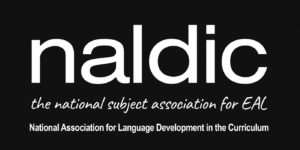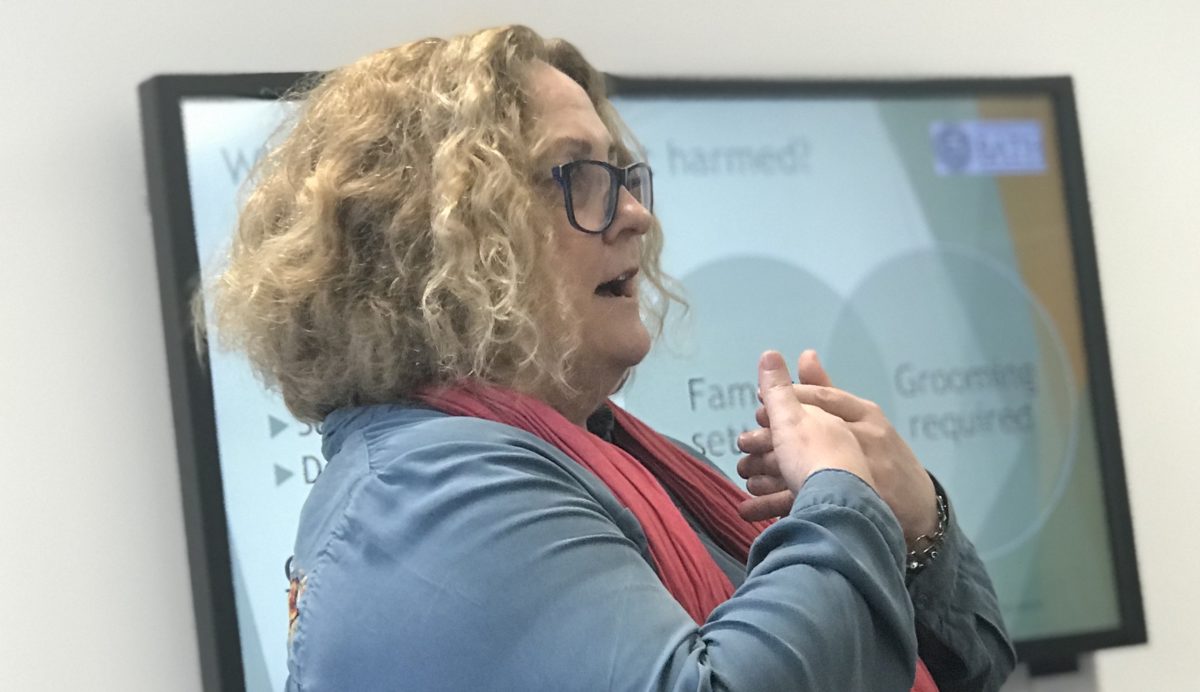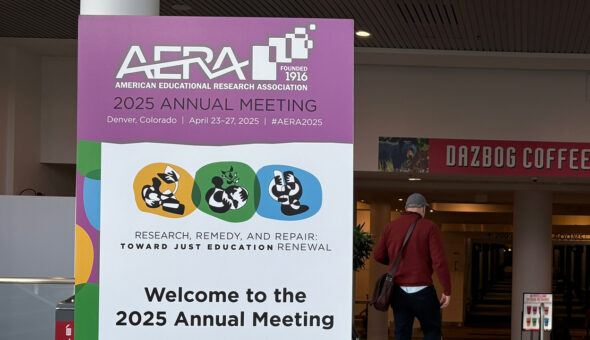Language and Developing Preventative Safeguarding Awareness
Blog by Gail Forey, Senior Lecturer at University of Bath. This workshop was presented by Joy Cranham (pictured), a PhD Student in the Department of Education at the University of Bath. Joy was previously an Assistant Headteacher in an inner-city primary School in Bristol.
The workshop by Joy Cranham was engaging and focused on issues of preventative safeguarding. We talked about topics such as a lack of language for professionals and learners to be able to adequately examine and discuss safeguarding and issues related to ‘grooming’. Joy highlighted the different types of groups that threaten our students, including issues such as child sexual exploitation and “county lines,” fundamentalist groups, trafficking and modern-day slavery.
Joy also described what happens when a child is isolated and separated during the process of grooming. Drawing on previous research, she highlighted characteristics of perpetrators, i.e. how groomers were profiled as being narcissistic, charismatic and authoritative. However, she also explained that people who are groomed are not all the same, instead their vulnerability corresponds to points of change within their life. This conversation exemplified the potential risks for young people and children with EAL (English as an Additional Language) in particular. These issues also highlighted the perceived need to counter this vulnerability and the importance of developing a shared language for young people to describe their feelings and experiences of risk and safety
During the lively discussion, other teachers introduced on-line resources that are used in their school to monitor safeguarding issues. These include Motional, Cpoms and Myconcern.
Further Safeguarding Opportunities
Joy is currently collecting data for her research and would be happy to provide CPD to local schools in the region. She would also be very interested in partnering with schools to work closely with families who might consider participating in her study. For more details contact Joy at j.cranham@bath.ac.uk
Announcements: Upcoming EAL Events in the South West
- Linking though Language: Introduction to Arabic - Better Bilingual Workshop
Fri, 3 April 2020, 10:00 – 12:00, Blaise High School, Bristol. More information here. - Inspiration Day “Inspiring Enquiring Minds through Communication & Literacy
17 March, 9am-3pm, cost £15 (non members) at The Old School, School Road, Westonzoyland, Bridgwater. Contact southwest@eyalliance.org.uk for more details.
Sharing Ideas of Good EAL Practice
- Opening groups for parents, coffee mornings, sewing circles were successful in some schools brining into the school predominantly mothers who may be isolated at home. Allowing the development of social groups for parents, some products that were sold at the school fairs and developing greater links with the community
- Acknowledging other cultures one teacher suggested bringing in material from the EAL learner’s host culture, e.g. in the English classroom, you could include poetry from the student’s country. Gail referred to the NALDIC Journal which was dedicated to translanguaging as a resource.
- Bank of knowledge to share the curriculum. For example, Imogen Hunter-Craig talked about her school, where they had a whole- school curriculum map, where each discipline could see the focus on a lesson in another discipline, and then share the focus on a particular area, e.g. the ocean and the environment was a topic that could be included in geography, art, English, science – and they could then reinforce, recycle ideas and build stronger links . Catherine Brenant pointed out that in Bristol “The One Bristol Curriculum” where all schools were working towards sharing the same curriculum across the city. For details visit this link.
- Translanguaging and other relevant topics are available and discussed in the NALDIC EAL Journal.
Future Wish List Topics that the group would like to see discussed at RIGS are:
- Assessment - How to access the wealth of knowledge the student comes to school with, and to assess their levels after they’ve been studying a short while. Catherine Brenan pointed out that the Bell Foundation have a new on-line EAL Assessment Framework that is very flexible. View it here.
- As well as the following: developing academic language, translanguaging, individual learner differences, motivation and EAL, language development and materials, bringing in students’ culture to the materials, language diversity and inclusion and other topics that we didn’t have time to fully explore and report back on.
Next Meeting
"Strategies and resources to support children in Early Years"
18 May, 2020, 2-4pm, Hosted by Sharon Bond, at The Old School, School Road, Westonzoyland, Bridgwater, TA7 0LN (near Taunton). Sign up here. The event is FREE and all are invited. CPD Cert available.
About the SW RIG & the New Convenors
We have new co-convenors for this region: Gail Forey, University of Bath, Simeon Bates, Bristol Brunel Academy, Bristol and Imogen Hunter-Craig, Penrice Academy Trust, St Austel and the Seretary, Isabelle Bridger, Learning Village are all volunteers.
As EAL services are being reduced in all our Local Authorities, we feel that collectively we can still benefit from supporting each other through EAL advice. If you are interested in being part of an EAL network and you live in the South West area, send an email to g.forey@bath.ac.uk so that you can be added to the mailing list. Please provide brief details of where you are located, which educational section you work in and if possible, some suggestions for discussions and venues for meetings.
For information please contact:
Gail Forey - g.forey@bath.ac.uk
Simeon Bates - simeon.bates@clf.uk
Imogen Hunter-Craig - ihuntercraig@penrice.org.uk
Secretary: Isabelle Bridger - isabelle@axcultures.com

Respond




